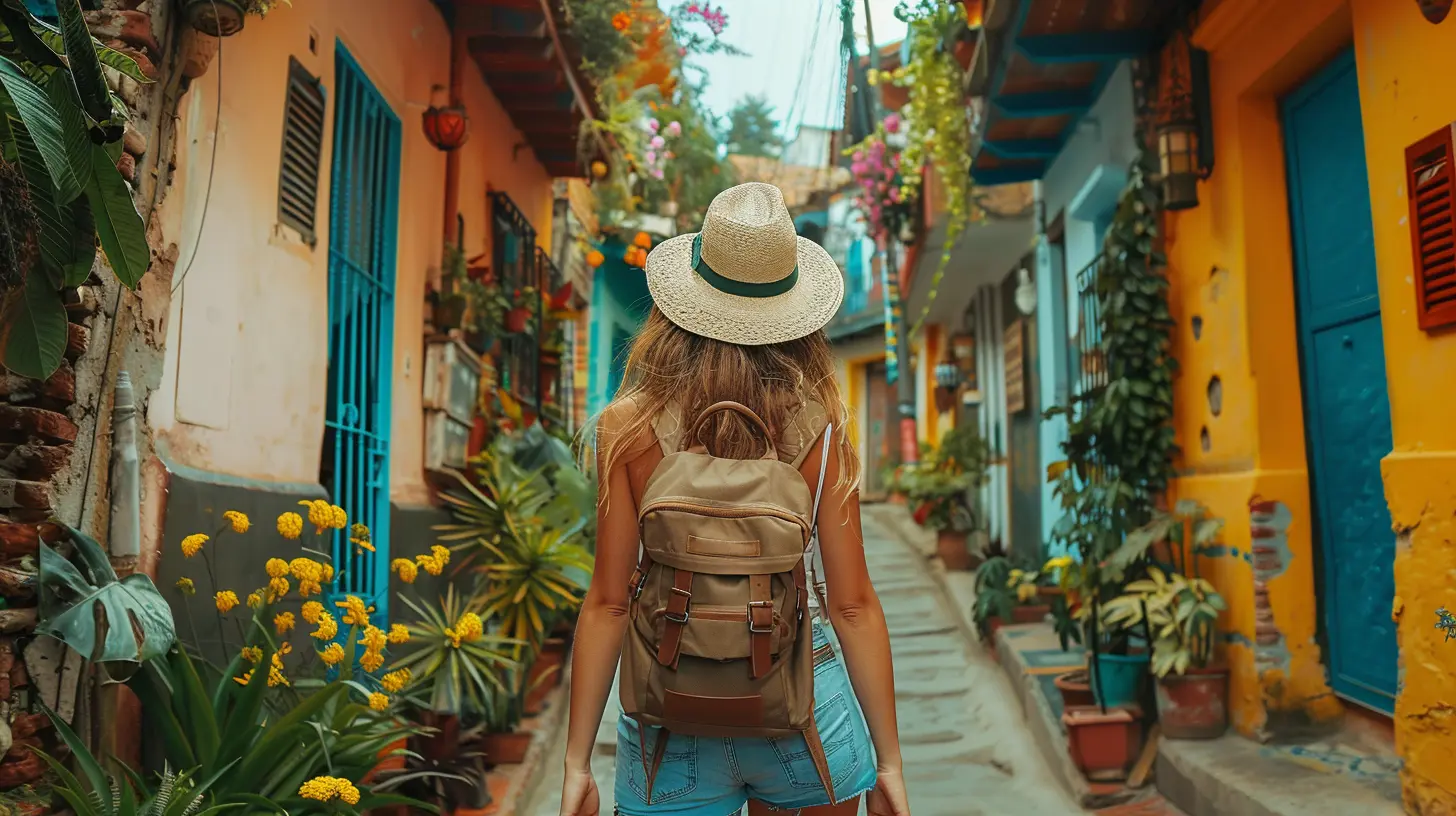Top Habits of Ethical Travelers: Tips for Responsible Volunteering
20 June 2025
Are you someone who loves to travel the world while giving back to the communities you visit? If so, there’s a good chance you’ve considered volunteering abroad. But here’s the kicker: not all volunteering efforts are created equal. In fact, some well-intentioned acts can do more harm than good if not carried out thoughtfully. That’s why ethical travel — especially volunteering — demands a conscious, responsible approach.
In this article, we’re diving into top habits of ethical travelers and offering tips for responsible volunteering. Let’s break down how you can explore the world, make a difference, and leave a positive footprint wherever your passport takes you.

What Does It Mean To Be An Ethical Traveler?
Before jumping into the specifics of volunteering, it’s essential to understand what being an ethical traveler means. You may have heard it tossed around in travel circles, but what’s it really all about?Simply put, ethical travel is about being mindful of the long-term impact of your actions on the environment, local communities, and cultural heritage. It’s about making choices that respect local customs, contribute positively to local economies, and cause no harm.
Now imagine this. You’re like a guest in someone’s home — you wouldn’t raid the fridge without asking, right? The same applies when you’re traveling; you tread lightly, absorb cultures respectfully, and always leave places better than you found them.

Why Is Ethical Volunteering Important?
Volunteering abroad is often seen as a noble thing to do, but it can unintentionally create dependence, undermine local jobs, or even foster exploitation if not done carefully. Ethical volunteering seeks to avoid these pitfalls by ensuring the volunteer’s efforts are genuinely needed and beneficial.Done right, it can be an incredibly enriching experience. Done wrong, it can leave behind a wake of unintended negative consequences. Nobody wants to be "that person" who showed up to ‘help’ but only caused problems, right?
So, what are the habits of ethical travelers who volunteer? Keep reading — we’re about to dig in deep!

1. Choose Reputable Organizations
Not all volunteer opportunities are created with good intentions, so this is a big one. Ethical travelers do their homework before signing up for any organization. Voluntourism is a booming industry, which means there are both good and bad actors out there. Whether it's saving sea turtles in Costa Rica or teaching English in rural Cambodia, you want to make sure you’re partnering with a trustworthy organization.How To Vet Organizations:
- Look for transparency. Organizations should be upfront about how your money is being spent, what you'll actually be doing, and how your work benefits the community.- Read reviews. What are past volunteers saying? Did they feel useful, and more importantly, was the community receptive to their efforts?
- Check certifications. Is the organization working with local partners? Does it have any accreditation from recognized bodies like Fair Trade Tourism or the International Volunteering Standards?
Red Flags:
- Lack of local involvement.- Vague role descriptions.
- High costs without clear indication of how the funds are used.

2. Learn About The Culture In Advance
Before you even book that flight, make it a priority to learn about the culture of the place where you’ll be volunteering. An ethical traveler not only speaks the language of kindness, but also of awareness. You wouldn’t want to intrude unknowingly on cultural norms or offend locals by accident, right?Spend time researching:
- Local customs and etiquette (Is tipping considered rude? Is eye contact respectful or inappropriate?)
- Religious practices
- Social issues and politics
Pro Tip:
Take it a step further and try to learn a few key phrases in the local language. Even a simple “thank you” or “hello” in the native tongue can go a long way in establishing rapport and showing respect.3. Volunteer For Skills You Actually Have
Here’s a harsh reality check: just because you have a heart full of good intentions doesn’t mean you automatically qualify to rebuild a school or teach a class. Ask yourself, "Am I the best person for this job?" Ethical volunteers ensure they’re offering skills that are both needed and appropriate.The Right Fit:
- If you’re a teacher, volunteer to teach.- If you’re a skilled builder, volunteer in construction.
- If you’re a healthcare professional, provide medical help where it’s safe and needed.
What you want to avoid is signing up for roles you aren’t trained or equipped for. After all, you wouldn’t want someone unqualified tinkering with your house’s electrical wiring, right? The same goes for volunteering.
4. Support The Local Economy
It's all too easy to fall into the trap of relying on foreign services and businesses when you're abroad, especially if you're volunteering through an international organization. Ethical travelers make a conscious effort to benefit the local economy by supporting locally owned businesses, purchasing local goods, and hiring local guides.Here are some easy ways to be more mindful of this:
- Stay in locally owned accommodations instead of generic chains.
- Eat at local restaurants, not just tourist traps.
- Buy crafts and souvenirs directly from local artisans.
Not only does this ensure that the community benefits directly from your presence, but it also enhances your travel experience. Who wouldn’t love a little more authenticity in their adventures?
5. Avoid Voluntourism Traps
Voluntourism has good intentions but can sometimes be exploitative, especially in areas like orphanage tourism or wildlife rehabilitation. Be wary of volunteer opportunities that seem more focused on giving tourists a feel-good experience rather than genuinely helping the community or environment.Orphanages? Think Twice.
Many orphanages around the world are profit-driven and thrive on the continuous turnover of well-meaning volunteers, which can harm children by creating attachment issues. You're better off supporting efforts that aim to keep families together or provide education and healthcare to impoverished communities.Animal Rehabilitation? Do Your Research.
Programs involving animals can be tricky too. Make sure any wildlife program you participate in emphasizes the long-term well-being of the animals over human interaction. If you're posing with a tiger for Instagram, it’s time to reassess whether you're really helping.
6. Be Mindful of Your Timeframe
You might be inclined to drop in, volunteer for a week, and then jet off to your next adventure. While this may seem harmless, short-term volunteer stints can sometimes do more harm than good, especially when working with children or in other sensitive roles.Ethical travelers set realistic expectations about the impact they can make in a short timeframe. Consistency and long-term engagement often provide more value to communities than brief appearances.
What Can You Offer In A Short-Term Volunteer Stint?
- Support ongoing initiatives.- Help with short-term tasks that don’t require extensive training, like beach cleanups or food distribution.
- Leave the heavy lifting—like education or caregiving roles—to professionals and long-term volunteers.
7. Respect The Environment
Ethical travelers don’t just show up and contribute to the community; they also respect the natural environment. Whether you're hiking through dense jungles or snorkeling in coral reefs, it’s important to leave no trace. Remember, your adventure might be fleeting, but the damage you do can last a lifetime.Ways to Protect The Environment:
- Avoid single-use plastics. Bring reusable bags, bottles, and utensils whenever possible.- Stick to marked paths. While it may be tempting to blaze your own trail, unregulated foot traffic can erode landscapes and disrupt wildlife.
- Pack eco-friendly products. Biodegradable soap, sunscreen that doesn’t harm coral reefs, and organic bug repellant are travel must-haves for the environmentally conscious explorer.
8. Practice Cultural Humility
There’s a fine line between helping and imposing. As much as you may want to share your perspective or introduce new ideas, remember to remain humble. You’re a visitor, so your role is to offer support, not take over. Ethical travelers work alongside locals and follow their lead instead of assuming they know best.Active Listening:
- Take a step back and listen to what the community really needs.- Understand that your way of doing things isn’t the only way.
Acknowledge Privilege:
It’s important to recognize that coming from a more privileged background doesn’t make you superior. Responsible volunteering involves a deep appreciation for the knowledge, resilience, and resourcefulness of the people you meet.9. Reflect On Your Experience
Ethical travelers take the time to reflect on their experiences to better understand the impact of their efforts. After your volunteer trip, ask yourself:- How did my work benefit the community?
- Was I respectful and mindful of the local customs?
- What can I learn from this experience to be a more responsible traveler in the future?
By reflecting, you set yourself up to be an even more ethical traveler next time around.
Conclusion
Volunteering abroad is a beautiful way to give back, but it’s not without its challenges. To be an ethical traveler, you need to approach every part of the experience with mindfulness, respect, and humility. Whether it’s choosing a reputable organization, supporting local economies, or being environmentally conscious, ethical travel is about blending adventure with responsibility.At the end of the day, remember: travel is about connection, not just consumption. When you volunteer responsibly, you’re not just seeing the world — you’re helping to make it a better place.
all images in this post were generated using AI tools
Category:
Volunteer TravelAuthor:

Winona Newman
Discussion
rate this article
2 comments
Lauren Cole
Great tips for mindful and responsible travel!
July 24, 2025 at 2:33 PM

Winona Newman
Thank you! I'm glad you found the tips helpful for mindful and responsible travel. Happy travels!
Astrid Cummings
True travelers prioritize ethics—volunteer responsibly or stay home. Respect communities, don’t exploit.
June 21, 2025 at 3:13 AM

Winona Newman
Thank you for highlighting the importance of ethical travel! Responsible volunteering is essential to fostering genuine connections and benefiting local communities.


